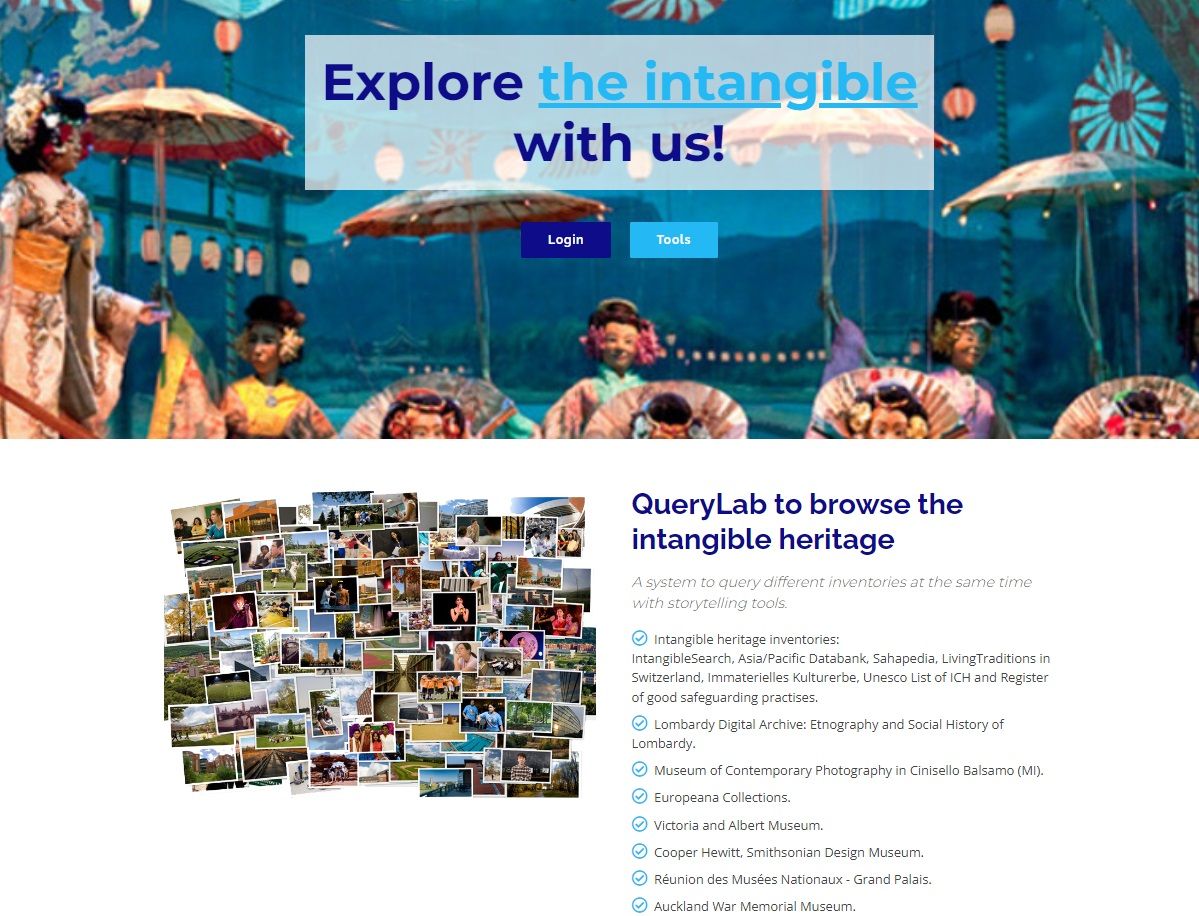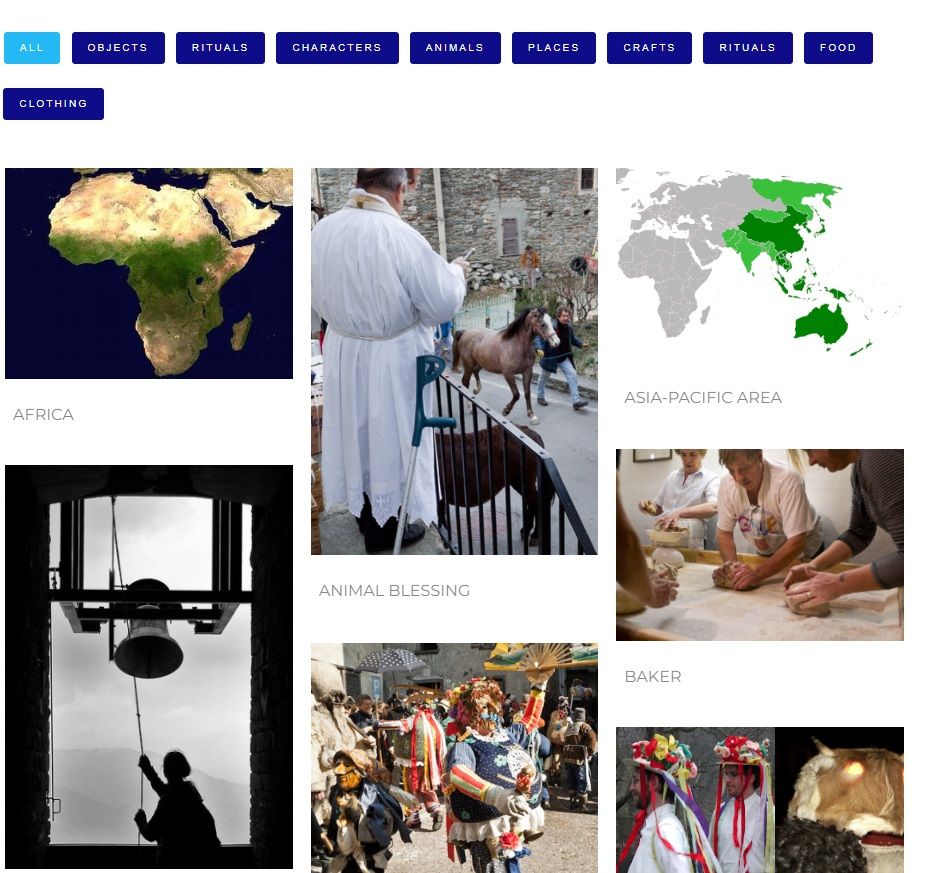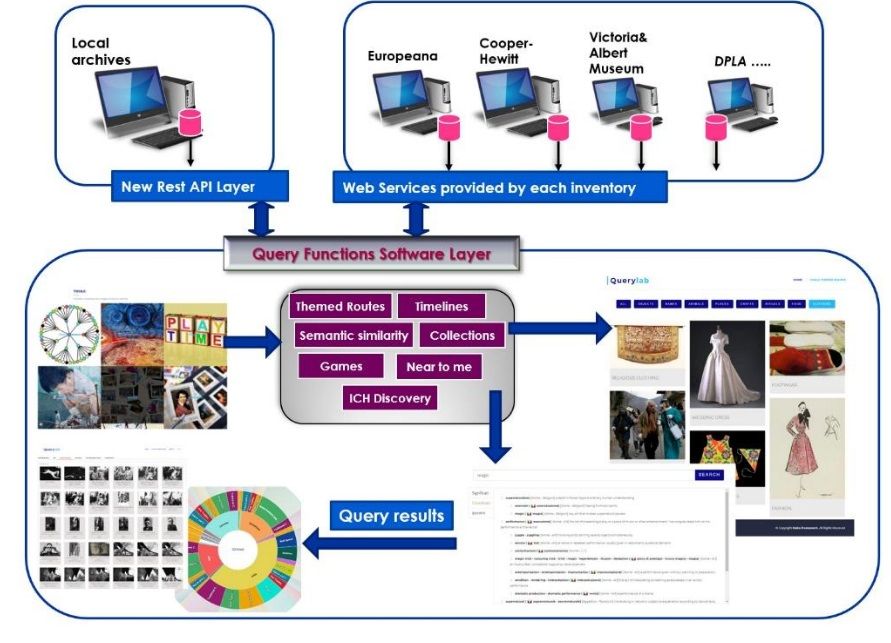From a research point of view, the QueryLab portal has become a test bed for experimenting with querying and accessing data, thanks to the huge amount of data that it gives access to. Our focus has been on usability, managing different content languages, user experience and creating thematic routes by extracting and classifying the most common tags.
How does QueryLab work?
The system searches in a language-agnostic way using Linked Open Data, so people can search in the language they prefer, or navigate between the guided tours created, bypassing the problem of coming up with something to write in a search empty box.
Through QueryLab, you can compare cultures, customs and traditions, making connections that were not possible before due to search constraints and siloed data platforms. To facilitate searching to people with different backgrounds and capabilities, several interaction methods are available, such as themed routes created through a process that analyses and organises the tags associated with the objects, and serious games based on content extracted from QueryLab results.
QueryLab functions as a sort of dashboard. It takes the query submitted by a user, sends requests to different web APIs at the same time, and translates all the responses from these different APIs into one graphical format. In this way, the user can search up to eleven online databases at once, three of them accessible locally, and get all the results at the same time.
The use of the Europeana APIs
We started by connecting the Europeana APIs with other Italian inventories available locally, dedicated to ethnography, social history, and contemporary photography.
The user-friendly approach of the console, the clear documentation of the parameters available for querying and interpreting search results, and the faceting services for filtering and refining data are what we liked best about the Europeana APIs. These characteristics guided us when searching for other similar web services and trying to broaden the range of sources available in Querylab.
We did not always find the same level of documentation, degree of parameter refinement and ease of use in all web services, which offer different levels of detail and complexity, sometimes making integration onerous. The Europeana APIs have been a benchmark in our experience and should be considered as a best practice for the development of this type of service by data providers.






